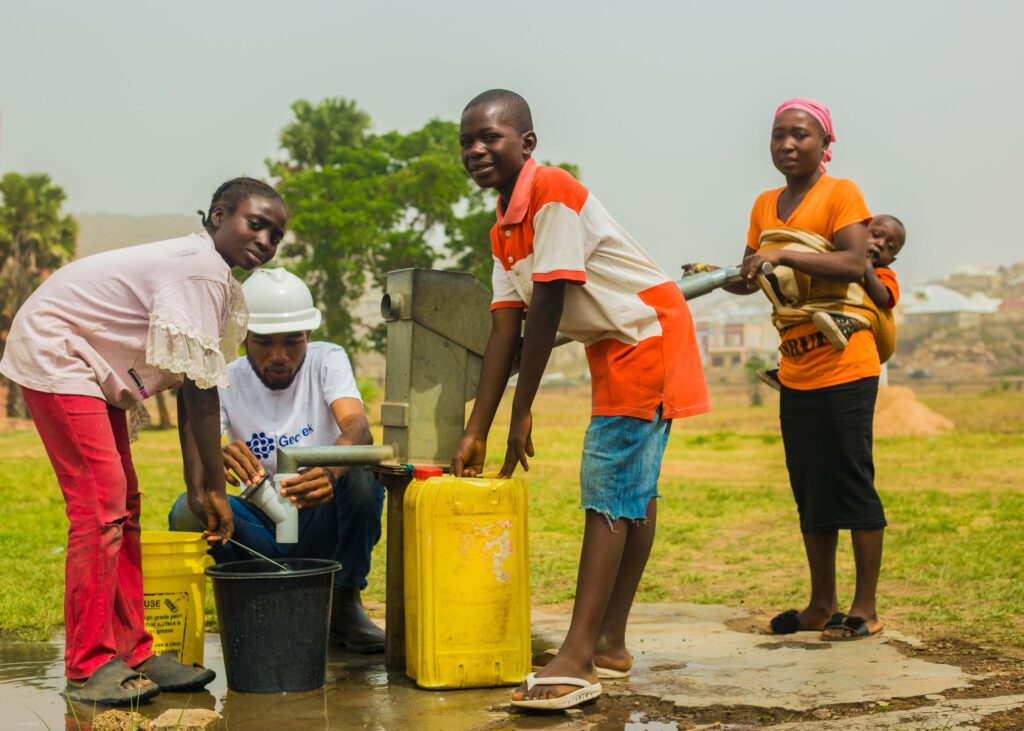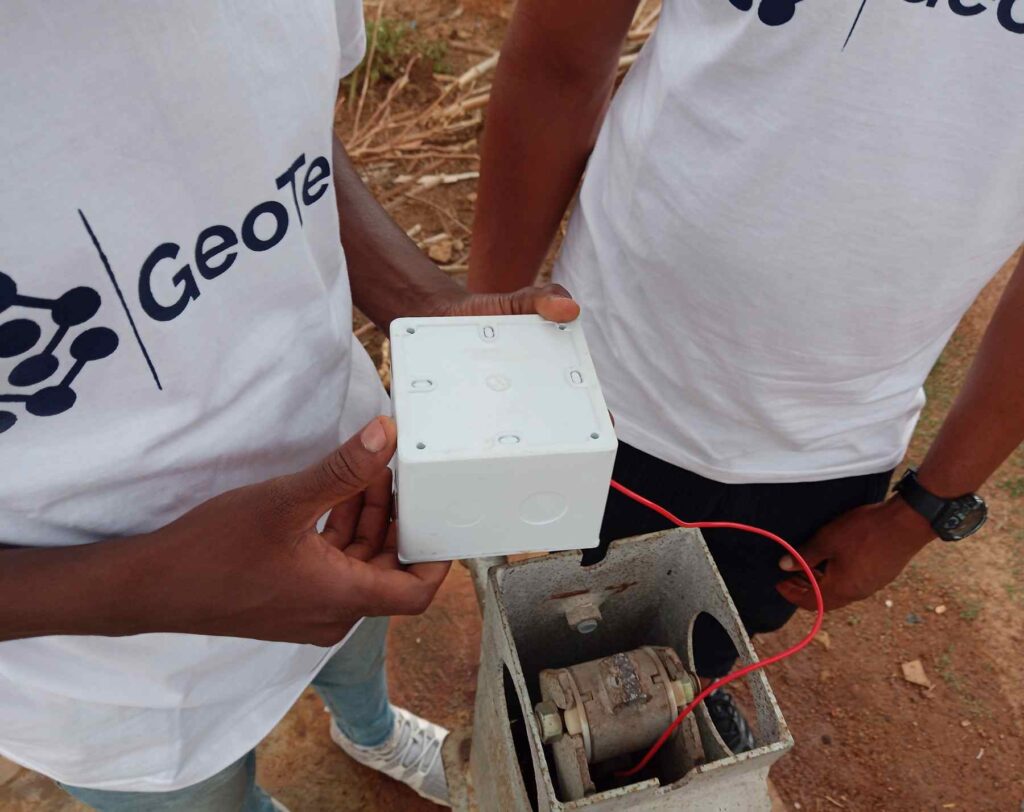Kujenga Maji: Empowering communities with solar powered water pumps
Access to clean and reliable water sources is a fundamental human right, yet millions of people in rural African communities still face daily challenges in obtaining this basic necessity. Kujenga Maji, a remarkable initiative, has emerged as a beacon of hope by installing solar-powered water pumps in these underserved areas. This project addresses the pressing issue of clean water access and contributes to environmental sustainability and economic empowerment, making it a shining example of sustainable development. We have partnered with and supported GeoTek Water Solutions, a leading social entreprice empowering over 5000 women and girls every month in rural communities through access to clean water.

Impact on Clean Water Access
Kujenga Maji’s primary goal is to ensure everyone in rural African communities can access safe and clean water. This initiative has brought a ray of sunshine to these regions by implementing solar-powered water pumps. Solar energy, a clean and renewable resource, powers the pumps, eliminating the need for fossil fuels that often contribute to pollution and greenhouse gas emissions. This shift towards clean energy has not only reduced the carbon footprint but also ensured a more reliable and constant water supply for communities.

Solar power ensures that water can be pumped even in the absence of conventional electricity sources. This is a game-changer for remote communities that previously relied on outdated and inefficient hand pumps or diesel-powered generators. With solar-powered pumps, families can access clean water effortlessly, promoting better health and hygiene practices, reducing waterborne diseases, and enhancing overall quality of life.
Empowering Women and Creating Jobs
One of the most notable aspects of the Kujenga Maji project is its commitment to gender equality and economic empowerment. In many rural African communities, women are often responsible for water collection, a time-consuming and physically demanding task. With the installation of solar-powered water pumps, women are freed from this burden, allowing them to pursue other opportunities and improve their livelihoods.

Furthermore, the project actively involves women in the maintenance and operation of these sustainable water systems. This not only enhances their technical skills but also provides them with a source of income. By creating job opportunities within the community, Kujenga Maji contributes to poverty reduction and economic stability, ultimately strengthening the resilience of these regions against the challenges posed by climate change.
Alignment with Climate-Resilient Development Goals
Kujenga Maji’s approach aligns perfectly with climate-resilient development goals. By harnessing solar energy, it reduces the carbon footprint and contributes to mitigating climate change, a pressing global issue. Moreover, the project helps communities adapt to the changing climate by ensuring consistent access to water, even during periods of drought or extreme weather events.
The initiative also encourages sustainable land management practices around the water sources, preventing erosion and safeguarding the ecosystems that provide these communities with essential resources. This holistic approach not only ensures clean water access today but also helps secure a sustainable future for generations to come.
